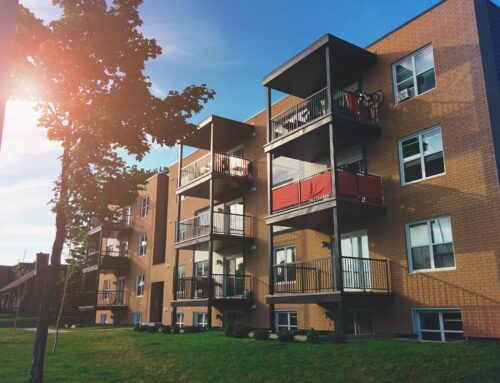Long overshadowed by red hot real estate markets in Toronto and Vancouver, Montreal is now gaining ground and showing signs of robust growth. The financial capital of the Quebec province, Montreal has long been recognized as one of the most desirable cities on the continent, but prices have remained modest, while home values in Toronto and Vancouver went sky high. (See our article on the Cost of Living in Montreal vs Toronto.)
Sales volume in January 2019 rose at a rate not seen since 2009, up 7.1 percent over December, roughly doubling the national average. Meanwhile, home values increased 6.3 percent from a year earlier. Despite this soaring volume and the healthy increase in prices, Montreal homes still remain far more affordable than those in Toronto and Vancouver. Compare the benchmark price of $349,000 in Montreal to $1.02 million in Vancouver.
The sharp slowdown in those two major markets can largely be attributed to the provincial regulations aimed at reining in runaway prices. While there are always a vast range of factors at play, the 15 percent foreign buyers tax in Greater Toronto and the 20 percent foreign buyers tax and second home tax in Vancouver seem to have played a key role.
Where will the Montreal Real Estate Market go from here?
Most experts expect to see Montreal lead the way in real estate growth in 2019. With prices sliding in Vancouver and creeping slowly upward in Toronto, Montreal is poised to display Canada’s largest gains this year. After several years of soaring prices elsewhere, Montreal has managed to maintain that enviable balance of reasonable growth and affordability.
Because of Montreal’s strong and diversified economy, lately driven by technology and artificial intelligence, home prices can continue to rise without affordability becoming a serious concern. At the same time, record low unemployment, a steady influx of immigrants and an up and coming generation of millennials with a higher interest in home ownership continue to put pressure on the housing supply.
All these factors seem to be producing a perfect storm of high volume and moderate growth that creates a winning market for buyers and sellers alike. A recent market survey from Royal LePage predicts a 3 percent price increase this year, bringing Montreal’s median home price up to $421,000.
What’s happening with Interest Rates?
Currently, interest rates are probably the source of greatest uncertainty for Canada’s overall real estate market. After several years of flat rates, the Bank of Canada has raised the rate five times since the summer of 2017, from a meager 0.5 to a still modest 1.75 percent. Along with the foreign buyers tax mentioned above, these rate hikes aimed to cool off the sizzling housing markets, especially in Toronto and Vancouver. And again, it appears to have had some success.
Now everyone is dying to know, will the rates keep going up, or will the Feds change course? And how much is too much? Granted, that’s a lot of rate hikes in such a short time, but we’re still nowhere near the 4 percent rates we had prior to the 2008 crisis. So let’s not overreact.
Some say the rate hikes have helped to slow down the out-of-control prices, although it’s impossible to say exactly how much. Others worry that higher interest rates are making it harder for first time buyers to qualify for a loan, and putting extra pressure on current home owners. In Canada, it’s very common for homeowners to have a five-year fixed rate loan, over the course of a 25 year mortgage. At the end of the 5-year term, the rate can adjust, which in this case means go up, sticking borrowers with a higher monthly payment for the next five years. In this way, the rate hikes can really put a squeeze on the whole economy. Luckily, Montreal’s economy looks strong enough to withstand a little knocking around.
The thing is, there are probably more opinions about interest rate policy than there are real estate agents in the entire province of Quebec. The smart money seems to agree that rates will stay way they are or maybe even come down a notch in 2019, but this is only speculation. And what effect it could have in equally uncertain.
My best advice in these conditions? Always borrow less than you can afford. This way you’re still safe if rates do go up. And never live beyond you means. But in a city as unaffordable as Toronto, that just might not be possible.
If you’re moving to Toronto and need to know more about the local economy, culture and customs, check out our Online Relocation Guides for Toronto. For more than two decades, ARIANNE Relocation has been helping families and professionals move to Canada, and quickly understand the housing, schooling, healthcare and culture in their new city. There’s no question we can save you time and money, and remove the guesswork of relocation.
Learn more
Get more local information from the following articles:







Leave A Comment